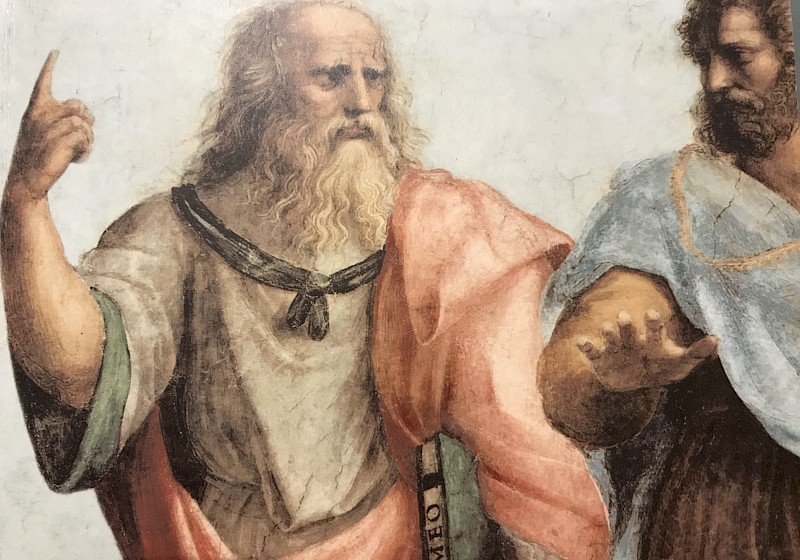Aristocles, better known under his nickname “Plato” deriving from his flat-shaped rather sizeable forehead, was born around 427 BC from Athenian nobility and set out to become one of the most prominent thinkers of Greek philosophy.
The young Plato got the best education of the day and was a student of Socrates until his teacher was charged with impiety and corruption of youth. Therefore, ultimately receiving the capital punishment in 399 BC. This event had a catalytic effect on Plato’s life leaving Athens in the aftermath of Socrates’ death in order to pursue knowledge and virtue. After travelling to Egypt and Sicily, Plato returned to Athens to found his very own Academy in 387 BC which was the first institution of higher learning to teach dialectical argumentation, classification and mathematics using the Socratic method (μαιευτικός). His Academy attracted many distinguished and outstanding men – Aristotle being one of them. Before he died in 347 BC, Plato wrote around 25-30 authentic dialogues and 13 letters whose authenticity however is called into question.
The philosophical work of Plato is of unparalleled influence and has laid the foundation of Western thinking, culture and politics. Apart from the Apology, Plato wrote in dialogue form, analysing τί ἐστι; (“What is X?”) and usually ending in ἀπορία. Not doctrines, but dialectical arguments are presented in his dialogues due to the fact that Plato wanted to elicit ideas and a clear understanding of the theme at hand. His role was that of an intellectual midwife bringing forth latent thoughts to be further discussed and analysed: μαιευτικός. His themes range from ethics, political and moral philosophy, to epistemology and metaphysics. Ethical themes such as the question of the highest good in Symposium are at the heart of his philosophy. His innovative ideas about the concept of εύδαιμονία, παρρησία, ἀνάμνησις and his Theory of Forms are still very much the topic of philosophical academia today.
In nuce, Plato’s systematic philosophy focuses on the art of living and knowing. For Plato, philosophy is an unfinished subject and ongoing process to which one would have to contribute throughout one’s life.
